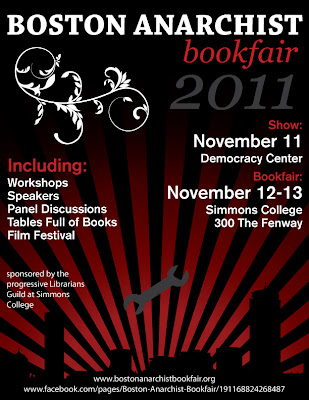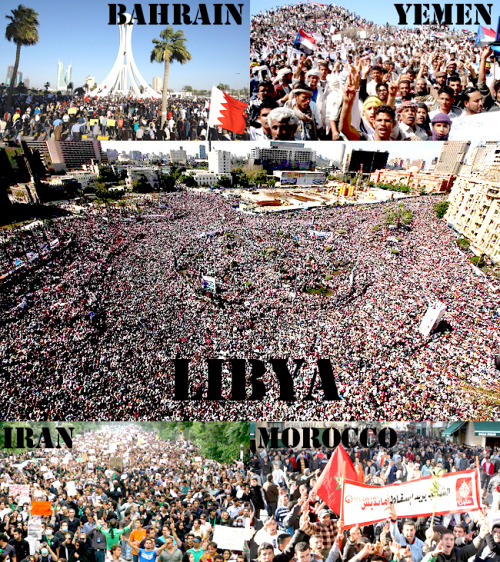The current capitalist society intentionally limits the availability of education in pursuit of profit. The SAF seeks to actively challenge authority and expand the political space for student power, create student-faculty-staff alliances, and broaden the idea of education. The struggle for a just educational system is an integral part of a larger struggle for a just world.
We, members of the Student Anarchist Federation, strive to build a space for anarchists and sympathizers. Our definition of “student” is not limited by ageist terms or to those attending a college or university. This organization is open to people of all ages who agree with our values, structure, and statement against oppression. The SAF envisions an educational system in which all those desiring to learn be given that opportunity within a communitarian and horizontal organizational framework. We aim to build new, liberated educational structures consistent with our values.
The Student Anarchist Federation identifies as anti-capitalist, anti-fascist, anti-imperialist, anti-sexist, anti-racist, anti-classist, anti-homophobic, anti-patriarchal, anti-transphobic, anti-ableist, anti-ageist, and against all other forms of oppression. We recognize that all oppression is connected and stand in solidarity with our comrades in the international fight for liberation. We actively promote and practice values of mutual aid, direct democracy, egalitarianism, autonomy, and solidarity in our struggle for a more just and compassionate world.
Structure: The structure of the Student Anarchist Federation (SAF) consists of a federation of collectives and geographic regional groups (example Tufts AAC and Boston SAF as being two units). Students who are not part of an individual collective can still be part of a regional organization. Federated groups will agree to the organizational statement of values but will have autonomy to work on local issues as well as unifying for larger campaigns.
Membership: Is open to all people interested in working on issues directly and indirectly involving students. All new members will be given info packets detailing the SAF’s values and anti-oppression principles in addition to related literature. Members are expected to participate in meetings whenever possible and to fulfill the expectations of the anti-oppression and values structure of the organization. It is up to the local collective and regional organization to decide whether individual members are carrying themselves appropriately within the federation. The membership lists will be maintained by local organizations, with numbers published nationally.
Congresses: National Assemblies will occur every year. These will act for the purposes of discussing national strategy and developing more infrastructure and power for Anarchists nationally. Regional congresses are encouraged between collectives and locals. Nothing these congresses decide will be fully binding unless all affiliated regional and collective organizations adopt it. Instead, statements and initiatives will be released as agreed by the congress.
National Working Groups: There will be organizing groups to accomplish specific functions, such as running the website, developing materials, legal support, anti oppression, membership recruitment, retention, and outreach. Other ad hoc groups and caucuses will form to address intersectional issues and campaigns. In order for working groups to be recognized on the website, they must consist of at least 3 members.
Funding: Members will be urged to donate $1-$10 on a monthly basis through Wepay (alternative to Paypal) or in person. This is not required and is based on ability to do so. Funding will go towards materials and website until the first congress further discusses needs.
PRINCIPLES
1. We acknowledge that power and privilege can play out in our group dynamics in destructive ways. We must challenge supremacist practices which marginalize, exclude, or de-humanize others. Privilege, like power can be used for positive purposes but should be used with awareness and care.
2. We can only identify how power and privilege play out when we are conscious and committed to understanding how white supremacy, patriarchy, classism, heterosexism, and all other systems of oppression affect each one of us. Each person who enjoys privileges granted by systems of prejudicial power (no matter how radical or revolutionary) must recognize the benefits and costs of their privileges. We must take responsibility for our prejudices and actions which perpetuate oppression.
3. We acknowledge that until we have clearly committed to anti-oppression practices, all forms of oppression will continue to divide our movements and weaken our power.
4. We acknowledge that developing anti-oppression practices is a life-long work and requires a life-long commitment. No single workshop is sufficient for learning to change one’s behaviors. We are all vulnerable to being oppressive and we need to continuously struggle with these issues and behaviors.
5. We acknowledge that dialogue and discussion are necessary and we need to learn how to listen non-defensively and communicate respectfully if we are going to have effective anti-oppression practice.
6. We speak only for ourselves, and commit to hearing each other and creating opportunities for all voices to be heard, especially for those that have been historically marginalized or silenced, and for those that continue to be oppressed.
PRACTICES
Personal Practices
· I challenge myself to be honest and open and take risks to address racism, sexism, homophobia, transphobia, and all other forms of oppression and hate head on.
· When I witness or experience oppression or abuse of power, I will interrupt the behavior and address it on the spot or later, either one on one, or with a few allies. I will be encouraging, rather than aggressive.
· I will challenge the behavior not the person. I will be sensitive and promote open dialogue.
· I won’t generalize feelings, thoughts, behaviors, etc. to a whole group.
· I recognize when someone offers criticism around oppressive behavior. I will treat it as a gift rather than challenging the person or invalidating their experience. I shall give people the benefit of the doubt and won’t make assumptions.
· I will acknowledge that the intent of an action may not have been malicious but the impact could have been. I will try not to write off people who make mistakes because I don’t want to be associated with them. I will help them admit what they did and take responsibility for making reparations for their behaviour.
· I will be mindful of how I project myself and my views and how I use body language and tone to assert power and control even without meaning to. I will challenge “macho-bravado” in myself, my friends and in my activism.
· I will respect the community, its space, and the decisions it makes.
· I commit to taking the action necessary to build this community. I aim to break down gendered divisions of labor.
· I understand that I will feel discomfort and pain as I face my part in oppression. I realize that this is a necessary part of the process of liberation and growth.
· I will support my comrades and be gentle with them through the process of our collective struggles.
· I won’t feel guilty, but rather I will feel responsible. Being part of the problem doesn’t mean I can’t be an active part of the solution.
· I will maintain these practices and contribute equal time and energy to building healthy relationships, both personal and political.
Organizational Practices
· We will commit time for organizational discussions on discrimination and oppression.
· We will set anti-oppression goals and continually evaluate whether or not we are meeting them.
· We promote an anti-oppressive framework and analysis in everything we do, in and outside of activist spaces, as expressed in the SAF Statement of Values.
· We recognize that oppression involves complex issues which need adequate time and space to address.
· We create opportunities for people to develop skills for effective communication about oppression.
· We promote egalitarian group development by prioritizing skill shares.
· We respect different styles of leadership and communication.
· We don’t push historically marginalized people to do things because of their identity (tokenism). We consider only their experience, skills, and interests.
· We make a collective commitment to hold people accountable for their behavior, so that the organization can be a safe and nurturing place for all.
Meeting Practices
· It is the role of the facilitator to ensure that the space is safe and welcoming for everyone. It is also the responsibility of each participant to contribute to this.
· Participants commit to active listening by not interrupting people who are speakin and not monopolizing conversations.
· Participants will be conscious of how their use of language may perpetuate racism, sexism, homophobia, ageism, and other oppression and hatred, either in person or online.
· Participants will not call people out who have not spoken.
· Participants will be conscious of how much space they take up and how much they speak in a group. They will practice “stepping up, stepping back” so they can each contribute to equal participation.
· Participants will respect different views and opinions.
·Participants commit to creating a safe space that balances race, gender and age participation.
· People who haven’t yet spoken will get priority through the system of progressive stack.
· Participants are encouraged to use the word “ouch” to draw attention to what they find oppressive. Likewise they are encouraged to use the word “oops” to acknowledge when they may have done something oppressive.
· Five minutes at the end of each meeting will be reserved for reflection on group dynamics during the meeting.
· We will commit to taking notes in the interest of transparency, while being mindful of security culture.
Meeting Space Guidelines
We have established the following guidelines for the space and meetings:
Use of the Space
1. This space / meeting is open to all people who abide by these principles and practices.
2. This space / meeting is not open to law enforcement officers.
3. This space / meeting is not open to the media without the consent of all participants.
4. No violence or threats of violence (verbal or physical) will be tolerated. Violence includes racist, sexist, homophobic, and any oppressive language or behaviours.
5. Respect for the health and well-being of everyone in the space and the space itself is a priority. No actions or substances are allowed that would jeopardize this climate.
6. Everyone is responsible for taking part in maintaining the space. Leave your workspace / meeting space cleaner than you found it.
7. This space and all activities within it are non-sectarian and non-authoritarian.
8. Space will be chosen with consideration for accessibility.
This document is adapted from Lisa Fithian from the “Anti-Racism Principles and Practices” by RiseUp DAN-LA, Overcoming Masculine Oppression by Bill Moyers, the FEMMAFESTO by a women’s affinity group in Philadelphia, the RANT Trainers Collective Anti-Oppression Principles and Practices, and the Occupy Boston Commitment to Anti-Oppression.


